The scientific program includes keynotes by leading researchers in the field ( Rita Colwell and Aedin Culhane) and selected presentations of contest dataset analyses. The two-day meeting will also feature a CAMDA Cafe with and opportunities for informal discussions.
Program
Times are provided for EDT time zone (and CEST time zone)
Monday, 13 July 2020
| 09:25 (15:25) | ISMB Welcome | |
| 09:30 (15:30) | ISMB Distinguished Keynote: Computational Analysis in Pediatric Cancer Precision Medicine | Elaine Mardis, The Ohio State University College of Medicine, U.S.A. |
| 10:30 (16:30) | Change Over for Sessions | |
| 10:40 (16:40) | CAMDA Welcome | |
| 10:45 (16:45) | CAMDA Keynote Climate, Oceans, and Human Health: Cholera as a paradigm for prediction infectious diseases | Rita Colwell, University of Maryland College Park and Johns Hopkins University Bloomberg School of Public Health, U.S.A. |
| 11:40 (17:40) | Program Break | |
| 12:00 (18:00) | Metagenomic Geolocation using Read Signatures | Dimitri Perrin, Queensland University of Technology, Australia |
| 12:40 (18:40) | Break, Open Networking Time, BoF | |
| 14:00 (20:00) | Unraveling city-specific microbial signature and identifying sample origin for the data from CAMDA 2020 Metagenomic Geolocation Challenge | Dorothy Ellis, University of Florida U.S.A. |
| 14:20 (20:20) | Spatial models for assessment of bacterial classification relevant to AMR | Dimitar Vassilev, Sofia University “St. Kliment Ohridski”, Bulgaria |
| 14:40 (20:40) | Metagenomic Geolocation Prediction Using an Adaptive Ensemble Classifier | Samuel Anyaso-Samuel, University of Florida, U.S.A. |
| 15:00 (21:00) | Program Break | |
| 15:20 (21:20) | Separation of Mystery-Samples using mi-faser and forest embedding | Maximilian Miller, Rutgers University, U.S.A. |
| 15:40 (21:40) | Metagenomic Data Analysis with Probability-Based Reduced Dataset Representation | Cory Gardner, Saint Louis University, U.S.A. |
| 16:00 (22:00) | Towards a metagenomics interpretable model for understanding the transition from adenoma to colorectal cancer | Carlos Loucera, Clinical Bioinformatics Area (FPS), Spain |
| 16:40 (22:40) | Program Break | |
| 17:00 (23:00) | ISMB Proceeding talk: IDMIL: An alignment-free interpretable deep multiple instance learning (MIL) for predicting disease from whole-metagenomic data | Mohammad Arifur Rahman, George Mason University, U.S.A. |
| 17:20 (23:20) | DNA Based Methods in Intelligence - Moving Towards Metagenomics | Paweł P Łabaj, MetaSUB International Consortium & Jagiellonian University, Poland |
| 17:40 (23:40) | 1st day summary |
Tuesday, 14 July 2020
| 09:25 (15:25) | Morning Welcome | |
| 09:30 (15:30) | ISCB Innovator Award Keynote: Computational modeling of tumor immunity | Xiaole Shirley Liu, Dana-Farber Cancer Institute, U.S.A. |
| 10:30 (16:30) | Change Over for Sessions | |
| 10:40 (16:40) | CAMDA Welcome | |
| 10:45 (16:45) | CAMDA Keynote Challenges and tools for integrative analysis of single cell 'omics data | Aedin Culhane, Dana-Farber Cancer Institute & Harvard TH Chan School of Public Health, U.S.A. |
| 11:40 (17:40) | Program Break | |
| 12:00 (18:00) | Effect of Tumor Purity on The Analysis of Gene Expression Data | Seungjun Ahn, University of Florida, U.S.A. |
| 12:20 (18:20) | Mechanistic models of CMap drug perturbation functional profiles | Maria Pena-Chilet, CIBERER, Spain |
| 12:40 (18:40) | Break, Open Networking Time, BoF | |
| 14:00 (20:00) | CAMDA Cafe - Grand challenges of our times | Intro by: Joaquin Dopazo, Clinical Bioinformatics Area (FPS), Spain & Wenzhong Xiao, Stanford & MGH, U.S.A. Panel discussion & Brekeout rooms |
| 15:00 (21:00) | Program Break | |
| 15:20 (21:20) | Prediction of Drug Induced Liver Injury with different data sets and different end points | Witold Rudnicki , University of Bialystok, Poland |
| 16:00 (22:00) | Improving Deep Learning Performance on Prediction of Drug-Induced Liver Injury | Peter Tran, Saint Louis University, U.S.A. |
| 16:20 (22:20) | Gene expression signature-based machine learning classifier of drug-induced liver injury | Junguk Hur, University of North Dakota, U.S.A. |
| 16:40 (22:40) | Program Break | |
| 17:00 (23:00) | ISMB Proceeding talk: AITL: Adversarial Inductive Transfer Learning with input and output space adaptation for pharmacogenomics Phenotypes and Clinical Applications | Hossein Sharifi Noghabi, Simon Fraser University, Canada |
| 17:20 (23:20) | ISMB Proceeding talk: Improved survival analysis by learning shared genomic information from pan-cancer data | Sunkyu Kim, Korea University, South Korea |
| 17:40 (23:40) | Award announcement and closing remarks |
Keynotes
Rita Colwell, PhD
Distinguished University Professor, University of Maryland College Park and Johns Hopkins University Bloomberg School of Public Health
President and Chairman, CosmosID, Inc.
Climate, Oceans, and Human Health: Cholera as a paradigm for prediction infectious diseases
Climate and the oceans historically have been closely intertwined with human health. Today significant advances in information technology have brought new discoveries - from the outer reaches of space, where remote sensing monitors on satellites circle the earth, to the ultramicroscopic through application of next generation sequencing and bioinformatics. Vibrio cholerae provides a useful example of the fundamental link between human health and the oceans. This bacterium is the causative agent of cholera and is associated with major pandemics, yet it is a marine bacterium with a versatile genetics and is distributed globally in estuaries throughout the world, notably the Bay of Bengal, but also in coastal regions and aquatic systems of the world. Vibrio species, both nonpathogenic and those pathogenic for humans, marine animals, or marine vegetation, play a fundamental role in nutrient cycling. They have also been shown to respond to warming of surface waters of the North Atlantic, with increase in their numbers correlated with increased incident of vibrio disease in humans. The models we have developed for understanding and predicting outbreaks of cholera are based on work done in the Chesapeake Bay and the Bay of Bengal and these models are now used by UNICEF and aid agencies to predict cholera in Yemen and other countries of the African continent. With onset of COVID-19, these models are currently being modified to predict SARS CoV-2 and incidence of COVID-19, the current pandemic of coronavirus. In summary, molecular microbial ecology coupled with computational science can provide a critical indicator and prediction of human health and wellness. How this is being accomplished and how we are beginning to understand environmental aspects of COVID-19 will be discussed in this talk.
About the speaker: Dr Rita Colwell's interests are focused on global infectious diseases, water, and health and Dr. Colwell developed an international network to address emerging infectious diseases and water issues, including safe drinking water for both the developed and developing world, in collaboration with Safe Water Network, headquartered in New York City.
Dr. Colwell served as the 11th Director of the National Science Foundation, 1998-2004. In her capacity as NSF Director, she served as Co-chair of the Committee on Science of the National Science and Technology Council. One of her major interests includes K-12 science and mathematics education, graduate science and engineering education, and increased participation of women and minorities in science and engineering.
Dr. Colwell served as President of the University of Maryland Biotechnology Institute and Professor of Microbiology and Biotechnology at the University Maryland. She was also a member of the National Science Board from 1984 to 1990.
Dr. Colwell has been awarded 63 honorary degrees from institutions of higher education, including her Alma Mater, Purdue University and is the recipient of the 2005 Order of the Rising Sun, Gold and Silver Star, bestowed by the Emperor of Japan, the 2006 National Medal of Science awarded by the President of the United States, the 2010 Stockholm Water Prize awarded by the King of Sweden, the 2017 Vannevar Bush Award from the National Science Foundation, the 2017 International Prize for Biology from the Japan Society for the Promotion of Science, the 2017 Chevalier de la Légion d’Honneur (“Knight of the Legion of Honor”) bestowed by the Ambassador of France, and the 2018 Lee Kuan Yew Water Prize of Singapore. Dr. Colwell is an honorary member of the microbiological societies of the UK, Australia, France, India, Israel, Bangladesh, and the U.S. and has held several honorary professorships, including the University of Queensland, Australia. A geological site in Antarctica, Colwell Massif, has been named in recognition of her work in the Polar Regions.
Dr. Colwell has held many advisory positions in the U.S. Government, nonprofit science policy organizations, and private foundations, as well as in the international scientific research community. She is a nationally-respected scientist and educator, and has authored or co-authored 19 books and more than 800 scientific publications. She produced the award-winning film, Invisible Seas, and has served on editorial boards of numerous scientific journals. She serves as Chair of the Research Board for the Gulf of Mexico Research Initiative (2010-2020).
Dr. Colwell has previously served as Chairman of the Board of Governors of the American Academy of Microbiology and also as President of the American Association for the Advancement of Science, the Washington Academy of Sciences, the American Society for Microbiology, the Sigma Xi National Science Honorary Society, the International Union of Microbiological Societies, and the American Institute of Biological Sciences (AIBS). Dr. Colwell is a member of the U.S. National Academy of Sciences, the Royal Swedish Academy of Sciences, Stockholm, the Royal Society of Canada, the Royal Irish Academy, the Bangladesh Academy of Science, the Indian Academy of Science, the American Academy of Arts and Sciences, and the American Philosophical Society.
Born in Beverly, Massachusetts, Dr. Colwell holds a B.S. in Bacteriology and an M.S. in Genetics, from Purdue University, and a Ph.D. in Oceanography from the University of Washington.
Aedin Culhane, PhD
Department of Data Sciences at the Dana-Farber Cancer Institute, and Department of Biostatistics, Harvard TH Chan School of Public Health, Boston, U.S.A.
Challenges and tools for integrative analysis of single cell 'omics data
Single-cell multi 'omics data has potential to provide unprecedented insights into molecular, spatial and cellular organization of tissue during health and disease. Whilst approaches for integrating single-cell data 'omics are emerging, the sparsity, high dimensionality, heterogeneity and scale of these data type present unique challenges. Due to the scale of single cell data, dimension reduction is an essential preliminary step in analysis pipelines, data integration, cell clustering and trajectory analysis. Principal component analysis (PCA) is a widely used for this because it is relatively fast, and can easily scale to large datasets when used with sparse-matrix representations. I will review different forms of PCA, impact of scaling, log-transforming, and how to recognize problems such as horseshoe or arch effect. I will describe a alternative to PCA which we have recently implemented in a new Bioconductor package Corral, and show how simple replacement of PCA with corral can improve integrative analysis of single cell data. I will describe challenges we have encounters and how we are re-envisioning tools we developed for bulk RNAseq data for emerging single cell data types.
About the speaker: Aedin Culhane is a Senior Research Scientist in Data Sciences at the Dana-Farber Cancer Institute, and Biostatistics at Harvard TH Chan School of Public Health where her lab develops computational approaches to integrate and analyze large scale ‘omics data to discover cross-talk between tumors and their microenvironment. Aedin Culhane earned her PhD at the University of Manchester (UK) where she applied both computational and experimental approaches in neuro-immunology. She pursed post-doctoral studies with Prof Desmond Higgins (University College Dublin) and Prof John Quackenbush (Harvard University). Her lab have contributed and maintain several Bioconductor/R packages for clustering, matrix factorization and integrative exploratory analysis of big data in genomics. She is a founding member of the Boston R/Bioconductor for genomics meetup. She co-chairs the Community Advisory Board of Bioconductor, and is on Technical Advisory Board of Bioconudctor and the MAQC Society Board of Director and Officers. On twitter @aedinculhane
Sign up to our low-volume announcements mailing list!
Check also our open forum for general discussions , including ideas and the development of future of contest data sets and challenges!
![]() Follow us in twitter
Follow us in twitter

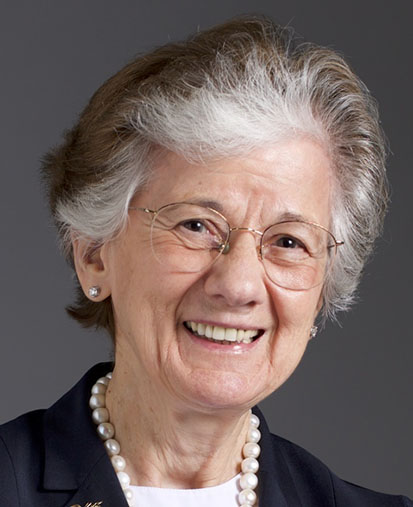
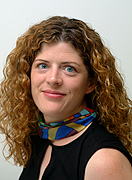



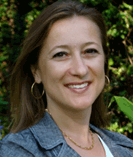



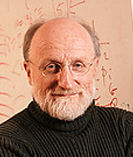


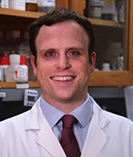
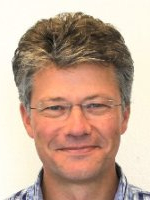




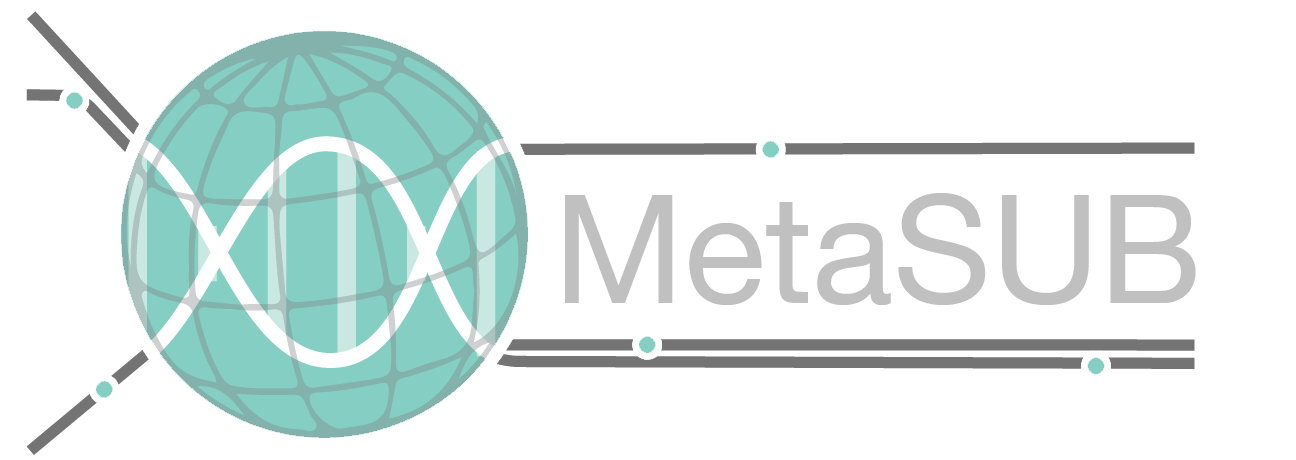

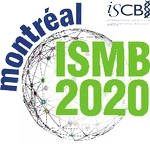



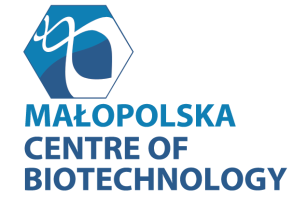

STAY CONNECTED
Tweet